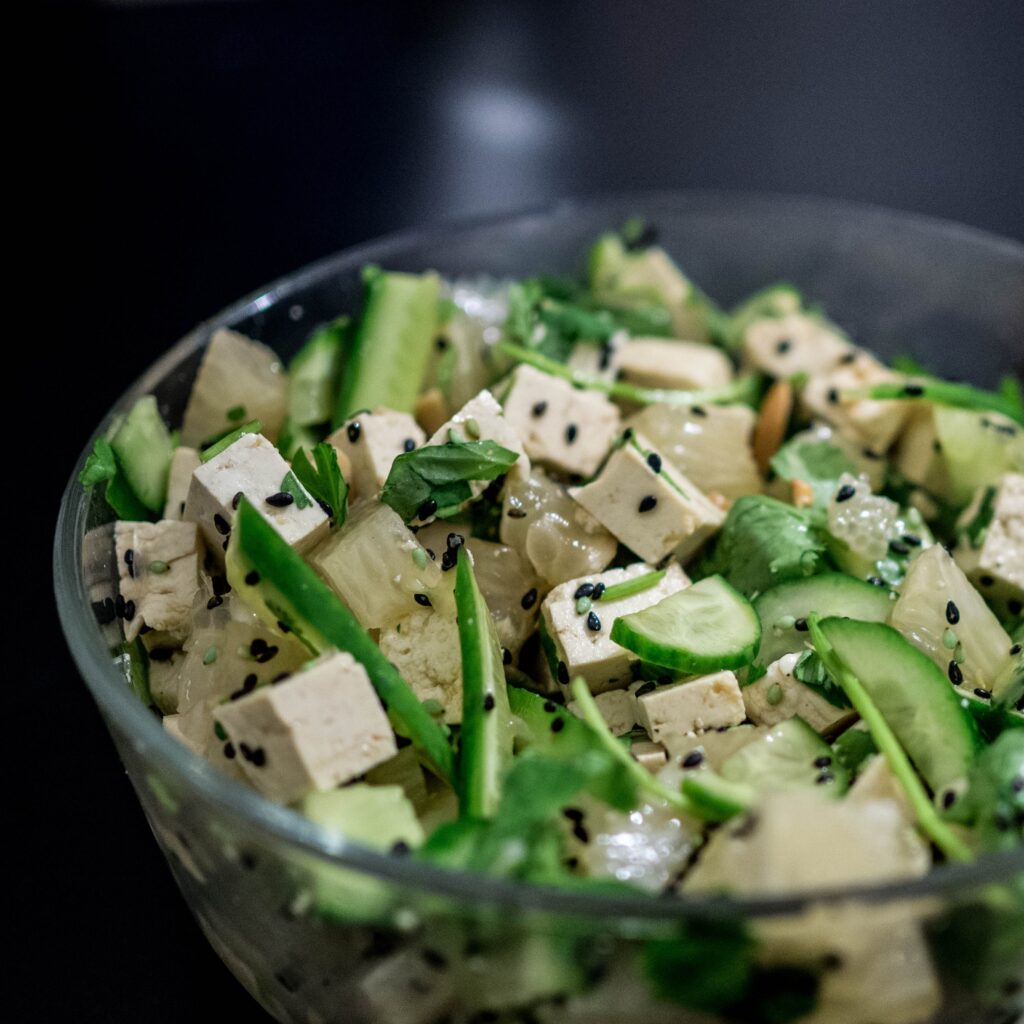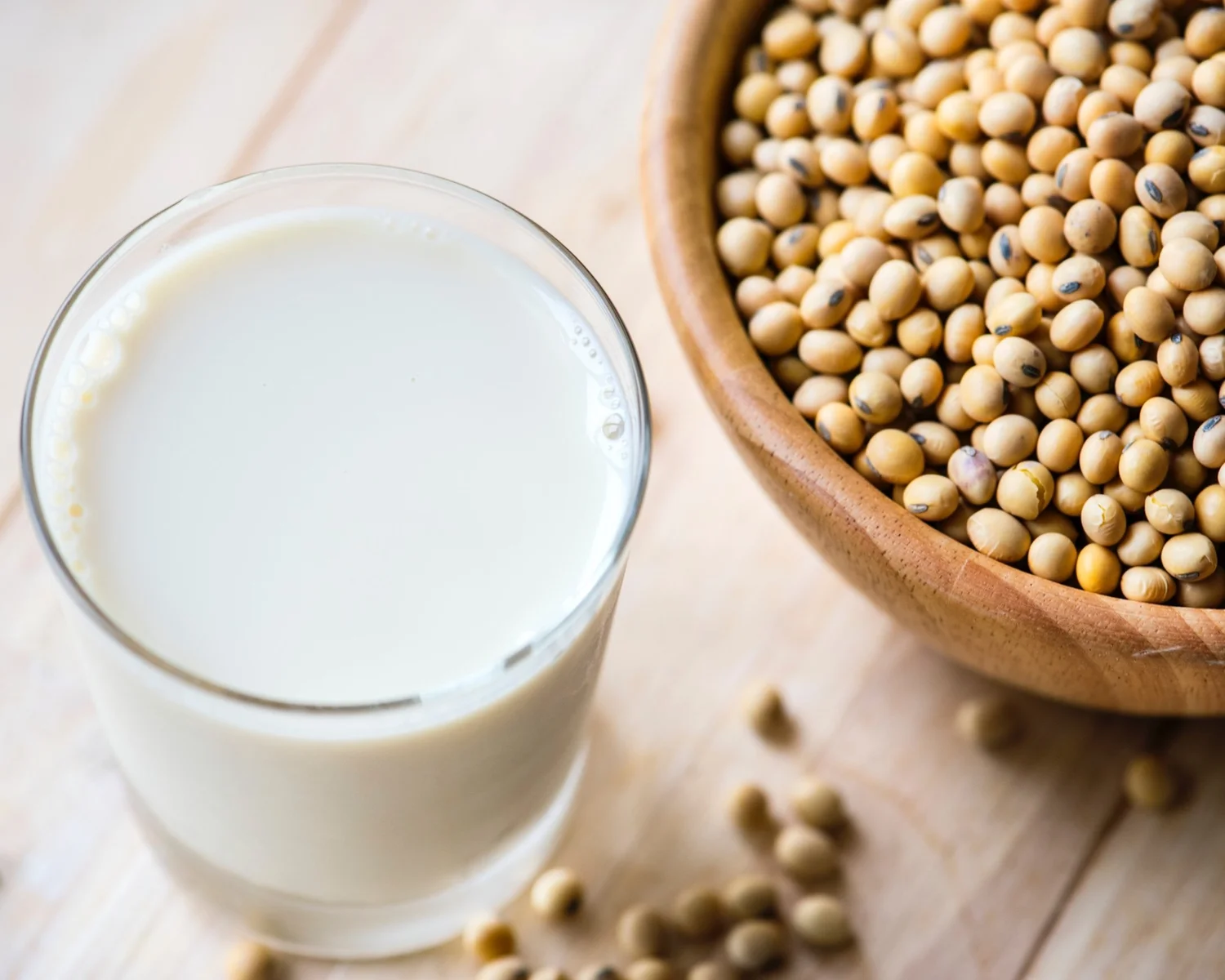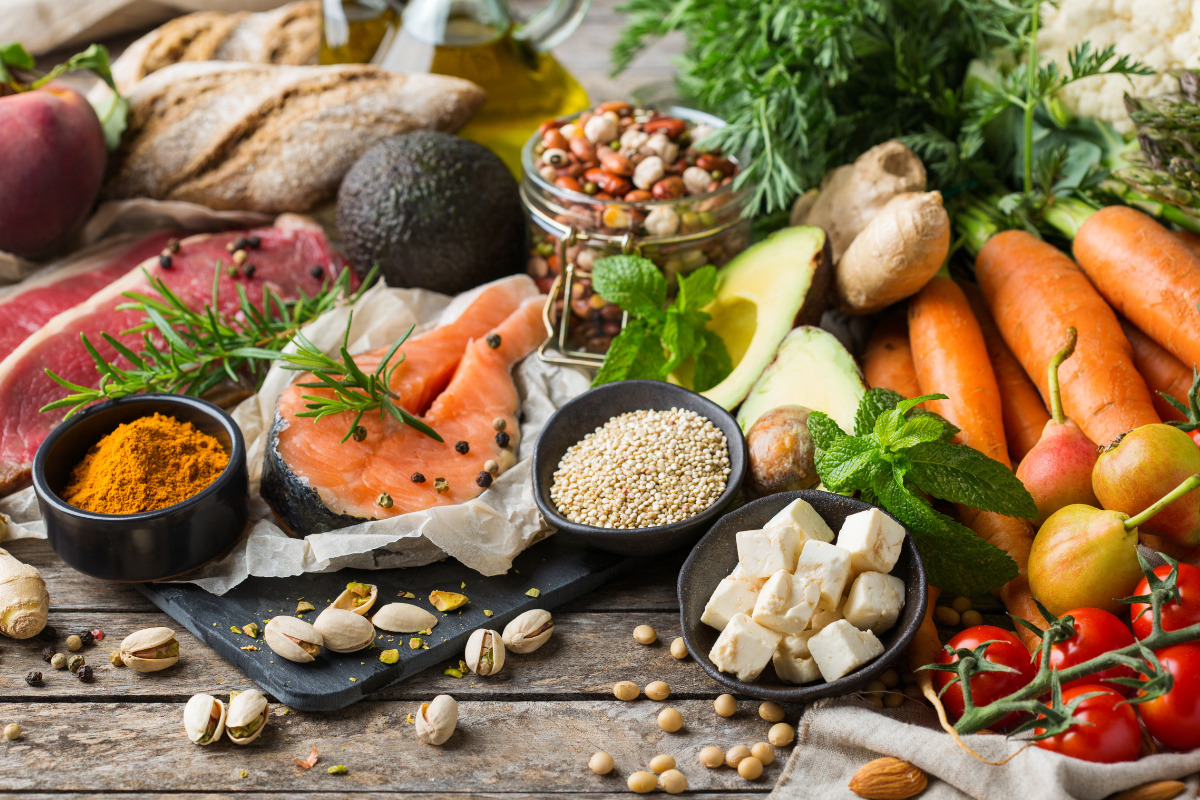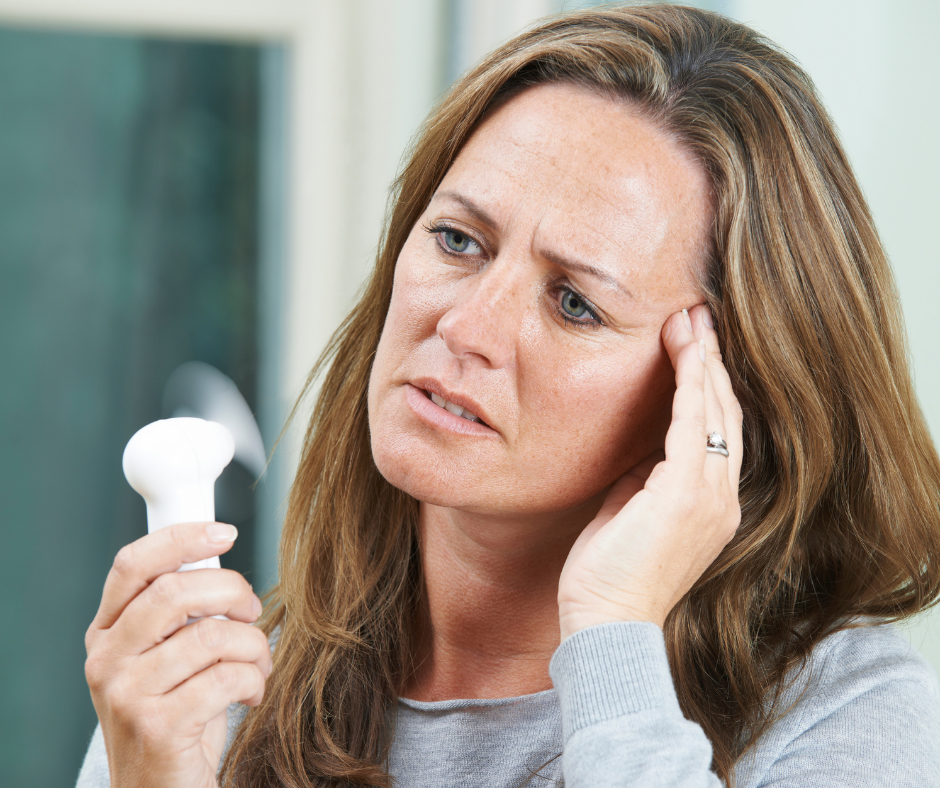The Facts About Soy for Women Around Menopause

Soy is arguably one of the most controversial foods on the planet, especially in the United States. When it comes to breast cancer, soy becomes even more of a heated topic. Is it helpful or harmful for women with breast cancer to consume soy? Does soy increase your risk of getting breast cancer? This article discusses what the latest research says about these questions and more.
What is Soy?
Soy is a nutritious plant-based protein that Asian cultures have been consuming for thousands of years. It’s also high in fiber, unsaturated fats, antioxidants, vitamins, and minerals. Soy originated in Asia but is now grown and available worldwide. In fact, the United States grows more soybeans than any other country. Soybeans can be eaten on their own or used to make soy products like tempeh, tofu, miso, soymilk, soy sauce, and soy flour. Soy is often processed into soy protein isolate or soy concentrates, used for dietary supplements, powders, beverages, and packaged snack foods.
Where Does the Confusion About Soy and Breast Cancer Come From?
Soy contains nutrients called isoflavones, which have chemical structures that resemble estrogens found in the female body. Because of the confusion around whether soy actually mimicked estrogen in a woman’s body, the term “phytoestrogen” was created to describe soy isoflavones.
However, it’s important to understand that research does not show this similarity strongly enough to suggest that soy is harmful or should be avoided. Phytoestrogens are not the same as estrogen found in the female body, and soy foods don’t contain the hormone estrogen. Furthermore, studies show that eating soy foods does not increase the risk of breast cancer or the recurrence of the disease.
What Are the Benefits of Eating Soy?
Research suggests that soy can benefit women with a history of estrogen receptor-positive breast cancer and may even reduce their risk for recurrent disease.
Other research has found that soy foods can protect a woman’s bone health, which is important because the risk for osteoporosis increases during menopause. Soy also appears to increase longevity among breast cancer survivors, especially those with hormone receptor-negative breast cancers.

Soy may also have benefits for menopausal symptoms. A 2021 study of postmenopausal women found that when they added half a cup of soybeans to a low-fat plant-based diet had an eighty-four percent reduction in moderate to severe hot flashes from five a day to one. A 2012 analysis of 19 studies found that soy isoflavone reduced hot flash intensity by twenty-six percent compared to a placebo. Another analysis, done in 2015, looked at ten studies and found that soy isoflavones reduced hot flashes by eleven percent. Note that soy isoflavones can take from several weeks to months to have these symptom-reducing effects, and they won’t necessarily be as significant as hormone therapies.
The most benefit of eating soy has been found when women begin eating it regularly at a younger age, a practice that is more often seen in Asian countries than in the United States.
Are There Downfalls to Consuming Soy?
The benefits of soy largely depend on the type of soy foods you choose to eat. There are countless sources of soy in today’s modern diet. Some soy-containing foods are not particularly healthy and may not be beneficial for breast cancer. Soy protein isolate, an additive often used in packaged foods, has been shown to potentially increase cancer growth in animal lab studies.
Soy supplements are not generally recommended either, as these are highly processed, contain other ingredients, and do not offer the same health benefits as whole or minimally-processed soy foods. In general, it’s always preferable to get your nutrients from whole foods rather than supplements.
What Are the Healthiest Soy Foods?
Minimally processed soy foods like organic tofu, tempeh, natto, miso, and edamame have much more nutritional value than soy protein powder or isolated soy concentrate added to certain packaged food items. It is best to avoid packaged soy products altogether and focus on whole, minimally processed forms of soy. Unsweetened, organic soymilk can be another healthy option that’s easy to incorporate into your diet. Roasted soy nuts in moderation are a great alternative to less healthy snack foods, just don’t eat too many. A one-ounce, 120-calorie snack is about the right portion.
Soybeans are the number one genetically modified food crop in the world. Choosing organic, non-genetically modified soy foods whenever possible is a good idea, as this reduces your consumption of pesticides and minimizes your intake of GMOs (genetically modified organism). Look for the non-GMO verified label.

How Much Soy Should You Eat?
Most research suggests that regular, moderate consumption of high-quality soy foods is safe and offers the most health benefits. For example, incorporating 1 or 2 servings of whole or minimally processed soy foods daily, like edamame, soy nuts, tofu, tempeh, and soymilk. Asian women typically eat between 20-80 mg of isoflavones a day. The average woman in the U.S. eats far below that amount.
The Bottom Line on Soy and Breast Cancer
The bottom line is that long, observational studies among American and Asian populations have shown that women who regularly consume soy foods have a lower risk for breast cancer. This has even been seen when women eat amounts of soy much higher than typically consumed.
Choosing the least processed organic soy foods is best, and speaking with a registered dietitian can help to learn how to best incorporate soy foods into a balanced menopause-optimized diet for the most benefits.
To learn more about nutrition and optimizing your diet during menopause, download Midday from the App Store or visit us at Midday.Health.
Lauren Panoff, MPH, RD, is a registered dietitian, freelance writer, and speaker who helps families transition to plant-based lifestyles. She can be found at laurenpanoff.com or on Instagram @chronicplanet.
Sign up for more unique women’s health content
By submitting this form, you agree to the Lisa Health Privacy Policy and Terms of Use


